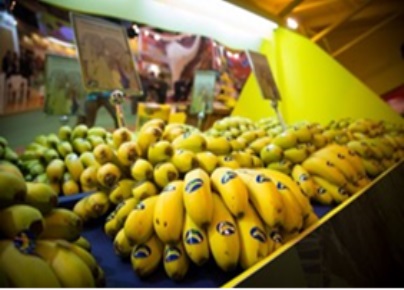Canary Islands Bananas Obtain Exclusive EU Tariff Classification
2023-11-03

The Protected Geographical Indication (PGI) of the Plátano de Canarias, which encompasses 100% of the production in the Archipelago, will now have a differentiated nomenclature within the customs code of the European Union.
It has been reflected in the amendment published on November 1 in the Official Journal of the EU, where the combined nomenclature (CN) '0803 90 11 – Plátano de Canarias has been introduced, thus recognizing the differences between bananas produced in the Archipelago and bananas from third origins.
With this new exclusive combined terminology, which will begin to be applied from January 1, 2024, the banana sector of the Islands is confident that it can provide "a further boost for the export and perception of the differentiated European product beyond the Spanish market," says the Association of Banana Producer Organizations of the Canary Islands (Asprocan) in a statement.
To date, there has been a single combined nomenclature for all fresh bananas entering the continental European market, regardless of their origin.
This circumstance "clashed directly" with the fact that Plátano de Canarias was already recognized in 2013 as a differentiated product by the European Union, which granted it the category of Protected Geographical Indication (PGI) based on its characteristics.
Faced with these differences and given the difficulties encountered by Canarian fruit to be considered differently in the wholesale markets of the rest of the European Union, Asprocan submitted a request to the European Commission that has been accepted, with the support of Spanish institutions and international organizations.
Asprocan recalls that, given the consideration of the Canary Islands as an Outermost Region of the European Union, all goods originating in the Archipelago and destined for the continental EU market are considered imports from third countries for customs purposes.
In the case of the Plátano de Canarias, having shared nomenclature with bananas of American origin or from African, Caribbean and Pacific countries until now, this prevented having "a correct traceability" of the product once it entered EU territory.
Also, recognize shipments of Plátano de Canarias PGI to other countries of the European Union or third countries, such as Morocco, Switzerland, or the United Kingdom, to control export volumes and destination markets.
Likewise, it was the case that, in the points of sale of the rest of the countries of the European Union or third countries, the distinction recognized for its figure of differentiated quality from the EU was sometimes not applied to the Plátano de Canarias.
By sharing a combined nomenclature with other bananas from other origins, import operators and distribution chains incorporated bananas into the same ripening and distribution processes as different types of bananas.









